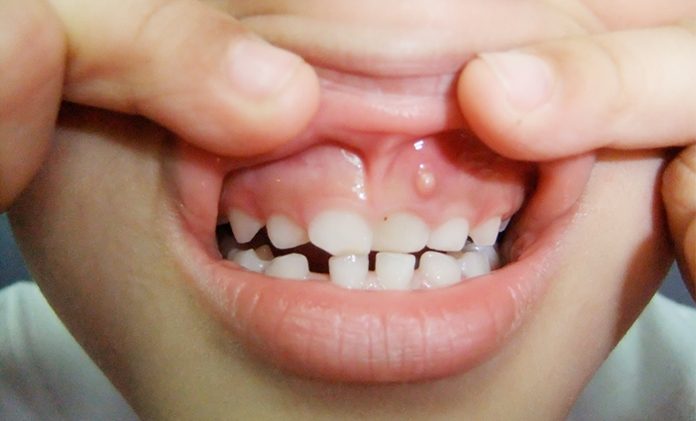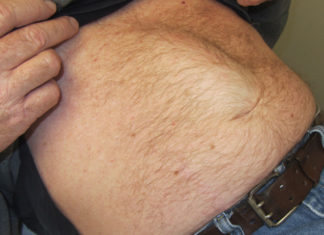When an abscess develops on the gums, it leads to the formation of a gum boil. They are usually painful and cause discomfort and difficulty in eating and speaking.
Though this is a treatable problem, avoiding the causes of the problem is the best way to treat it. The gum boils look like a bump on gums, and the area around it gets swollen. It is of the same colour as that of the surface of the gum. In severe cases, however, it can get more swollen and turn redder in colour.
Bacteria can be a significant reason behind the gum boil. The problem can crop up due to a plague, tooth decay, and food particles. The bacteria can be the cause of infection on the surface of the gum. In some rare cases, gum boil can be a symptom of oral cancer.
Gum boils can be categorized as the following based on the region it shows up.
- In the area of gum line – gingival abscess
- The root of the tooth area – periapical abscess
- Supporting tissue area of the teeth – periodontal abscess
Causes of Gum Boils
Gum boils usually develop at the gum’s surface, where there are food particles, bacteria, and plague, which leads to gum infection.
People already suffering from gum diseases like bacterial infection, damaged tissues of gum, mouth ulcers, root canal infections, other periodontal disorders are also more likely to suffer from dental abscesses.
Gum disease, in some cases, can also lead to the formation of pockets in the gum where food can get stuck and trigger an infection. Do not ignore the problem and take proper dental care to prevent gum boils. Tooth decay can lead to the formation of a soft lump that looks like bubbles on the gum.
When a tooth decays, the nerves of the infected tooth die and lead to an infection. The white blood cells accumulate at the affected spot, forming a bubble on the gum and causes swelling.
A person with a weak immune system can also face teeth and gum tissues, so they should always take extra care. If the gum boils turn severe, it may lead to oral cancer, which affects the tongue, gum, and lips.
Always visit the dentist to rule out other causes of teeth problems like cancer and analyze the issue further. The repeated visit to the dentist can become expensive, so it is better to have validated dental insurance. If you do not have one, you can also find dentists who accept you even without insurance.
Symptoms of Gum Boils
Pain is the initial indication of a gum boil. After a day or two, you may notice a bump on your gum.
Symptoms of gum boils are:
- Bad breath
- Bleeding
- Pain
- Soft blisters filled with fluid
- Discharge of pus
- Bad breath
- Ear-ache
- Swollen gums
- Redness
- High sensitivity to cold or hot
- Nausea
- Losing appetite
- Fever
Severely painful and untreated gum boils cause chills, feverish feeling, and even vomiting. Gum infection can spread to other areas of the gum and mouth.
Recurring Gum Boils
The problem of gum boils can be a recurring one from time to time. A recurrent gum boil indicates that the last time it showed up, it was not treated completely. The infection can spread and appear in other areas of your mouth. Gum boils can be treated with antibiotics.
Gum boils can happen to pregnant women also. There is nothing to panic about this. However, it is also necessary to monitor the problem. In such cases, gum boils can occur due to fluctuations in hormones. The gum boils will again disappear after the delivery of the child. Talk to a dentist if teeth issues start to interfere with other daily activities of your life.

General Treatment of Gum Boils
A gum boil is generally the result of poor dental hygiene. Proper maintenance of oral health can help to prevent the problems from happening at all.
If a gum boil crops up, your dentist will recommend an effective antibiotic to help the boil disappear in a few days. In severe cases, you will be asked to go for:
- Deep cleaning or a periodontal therapy by the dentist
- Professional removing of the gum boil
- A root canal or an endodontic by the dentist
- Dentures adjustments, if they are poorly placed and fitted
Treatment of Gum Boils at Home
Home remedies are always safer with minimal adverse effects. Practitioners, who believe in the natural healing process, still recommend home remedies as the best solution to problems. Let us look at some of the best home remedies to cure the problem of gum boils.
- Gargle with saltwater
- Rinse the mouth with hydrogen peroxide mouthwash and some water
- Consume raw onions as they have sulfur which can heat and dry up the gum boils
- Apply garlic paste on the affected area or rinse your mouth with garlic juice
- Apply clove oil
- Apply tea tree oil
- Apply a paste of 1/2 tsp mustard oil, one tsp turmeric powder, and 1/2 tsp kosher salt
A gum boil forms from an abscess. The abscess forms from infection, and if it is left untreated, it can spread through bones, bloodstreams to other areas of the body leading to a life-threatening condition.
Follow a regime of good oral hygiene practice to protect your gums and mouth. Floss your teeth as often as possible. Brush your teeth twice daily and use a mouth freshener or anti-bacterial mouth rinse as they are beneficial in fighting cavities and bacteria that grow in the mouth.
Visit a dentist as soon as you detect a problem because the sooner it is, the better. Your dentist knows the correct way to treat your problem, and with the help of antibiotics, the spreading of the infection can be stopped.






